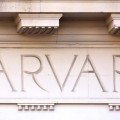 The family of the late William F. Connell, alumnus of the Harvard School of Business (HBS) donated $10 million to the school to support curriculum development, with a special focus on the second year of the MBA program, according to a post on the Harvard Business School website.
The family of the late William F. Connell, alumnus of the Harvard School of Business (HBS) donated $10 million to the school to support curriculum development, with a special focus on the second year of the MBA program, according to a post on the Harvard Business School website.
The family’s $10 million gift will establish the Margot and William F. Connell Family MBA Program Innovation Fund.
Connell, who died in 2001, founded the Connell Limited Partnership, a Boston-based group of manufacturing companies that worked in agriculture, construction and energy. He obtained his MBA from Harvard n 1963 and received the Harvard Business School’s Alumni Achievement Award after his death.
Harvard Business School’s second-year curriculum is known as the “elective curriculum” because it allows students to choose their courses. Harvard Business School Dean Nitin Nohria said the $10 million will be used to make the second-year curriculum of the MBA program “a deeper, more cohesive, and more innovative experience that will have a life-long impact on our students.” Specifically, the funds will be used for faculty development, new business courses and new technology platforms.
A portion of the funds will be used to better integrate the two years of the MBA program. The school made significant improvements in its first-year curriculum in 2011, including its Integrative Intelligence course that requires students to work in small teams to create a very small business in a 15-week period. Harvard Business School estimates that it will take three years to design and implement its new second-year curriculum and integrate it with the first-year curriculum.
Several other business schools are making improvements to their MBA curriculum to meet the needs of current business students, as well. The Wharton Business School at the University of Pennsylvania has redesigned its MBA curriculum over the last couple of years to better prepare students for a globalized business world.
Wharton has implemented Global Modular Courses (GMCs), which are business workshops that use project-based learning in locations that are relevant to the course material. It offers up to 13 different courses per year in places like Brazil, China and Israel. Wharton claims the courses offer MBA students a “unique combination of local immersion, course concepts and emerging business issues.”
In a move to promote the creation of small businesses among its business school graduates, Pepperdine University’s Graziadio School of Business and Management now allows students to get an MBA with a concentration in entrepreneurship. Pepperdine’s Master of Science in Entrepreneurship degree helps students expand their “creative vision” and then work on their idea to create an actual business in 20 months. On July 8, the school released a PDF e-pub to showcase seven of its alumni and students on their entrepreneurial journey.






No Comment